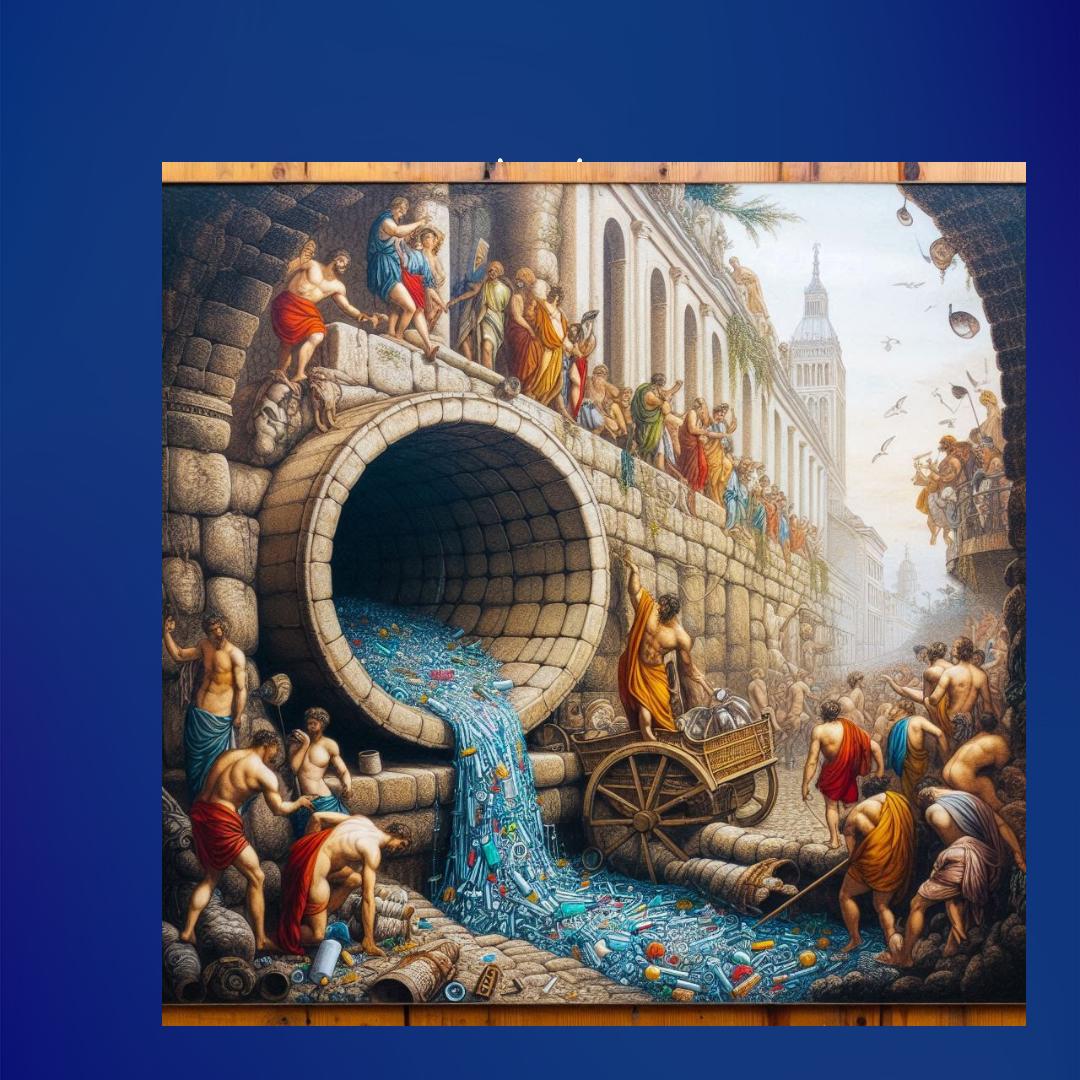The earliest indication that humans might throw nature off balance was the pungent odor of sewage in crowded cities. Fast forward to the industrial era with its stunning advances and rainbow of man-made pollutants, and the problem of pollution has gotten far worse. Greenhouse gases are filling our atmosphere, chemical residues once considered miraculous permeate soils and waterways, and plastic fragments so minuscule they float in the air have even crept into human blood. At first blush this might seem to be a colossal oversight, or a learning curve on a global scale. But it reflects countless profit-driven corporate decisions combined with systematic efforts to undermine scientific findings and misdirect public attention.
At the dawn of advanced civilizations such as the Roman Empire, the first indication of man-made pollution was concentrated human waste, which prompted building the Cloaca Maxima, Rome’s first sewer system. Back then, people could attribute public health hazards to easy to understand urban crowding or meager infrastructure. But today, a more complex interplay of industry and governance accelerates environmental pollution. Emissions of carbon dioxide have doubled from previously recorded levels resulting in each of the last five years hotter than the preceding one. Meanwhile, the Environmental Protection Agency (EPA) warns that perfluoroalkyl and polyfluoroalkyl substances (PFAS) – “forever chemicals,” are now found everywhere scientists look. Microplastics have even infiltrated our own bodies, according to many recent studies that are now starting to look for it.
The crucial factor in this modern predicament is corporate influence and its choreographed efforts to confuse or dismiss credible science that documents the dangers. As documented in Merchants of Doubt, the examples are nearly as plentiful as PFAS of corporations and their lobbyists orchestrating public relations campaigns designed to undercut independent research that points to product hazards. When pressured, these firms reliably trot out findings from their own scientists who insist that their products pose no threat to the public or planet. Regulators then face conflicting reports, a false equivalence of actual science on one side, public spin on the other, leading to protracted debates that stalls meaningful action. This pattern of disinformation extends from tobacco to oil, and from chemical manufacturers to plastics conglomerates, each iteration stumbling forward, reflexively massaging the message as a delay tactic.
The most pressing lesson is the necessity of accountability. Public officials, aided by impartial scientific inquiry, must begin requiring corporations to research and release data on each stage of their products’ life cycle. Where credible evidence of harm exists, society should push to curtail or replace those hazardous materials. This precautionary principle (ignored by fast-paced markets) proposes that whenever uncertainty remains and lives or environmental stability are at stake, the prudent path is vigilance to safety and health rather than complacency toward business.
Roman engineers discovered that sewage had to be channeled away from living quarters 2000 years ago, and today’s industrial societies likewise require safeguards to keep a host of modern pollutants from overwhelming ecosystems. Yet time and again, corporations plead for additional study while protesting that examining impacts through regulation is too expensive and will cost jobs. Such claims have so far enabled pollution to amble forward, compounding, while historical lessons and common sense make clear that inaction only inflates the problem. Then, when cleanup costs skyrocket, such as Superfund Sites, the same companies bemoan those costs as a reason to not clean up at all.
Public demand for green policies unfortunately exerts far less influence than corporate lobbying and campaign funding. Revelations are pouring in about how deeply modern pollution has saturated the air and oceans, wildlife and human populations, but the public still feels powerless to do anything about it. Without stronger oversight though – the corporate boogeyman “regulation,” and without the public having a way to demand control of the environmental commons that belongs to everyone, industry will keep marching us toward a dystopia that’s analogous to bacteria multiplying and consuming all resources until the entire colony collapses in a flash. Corporate crusaders for perpetual growth treat the Earth like an infinite sponge to be squeezed, a limitless petri dish to soil, all for short-term profit and an executive lifestyle at the expense of the only known life in the universe.
